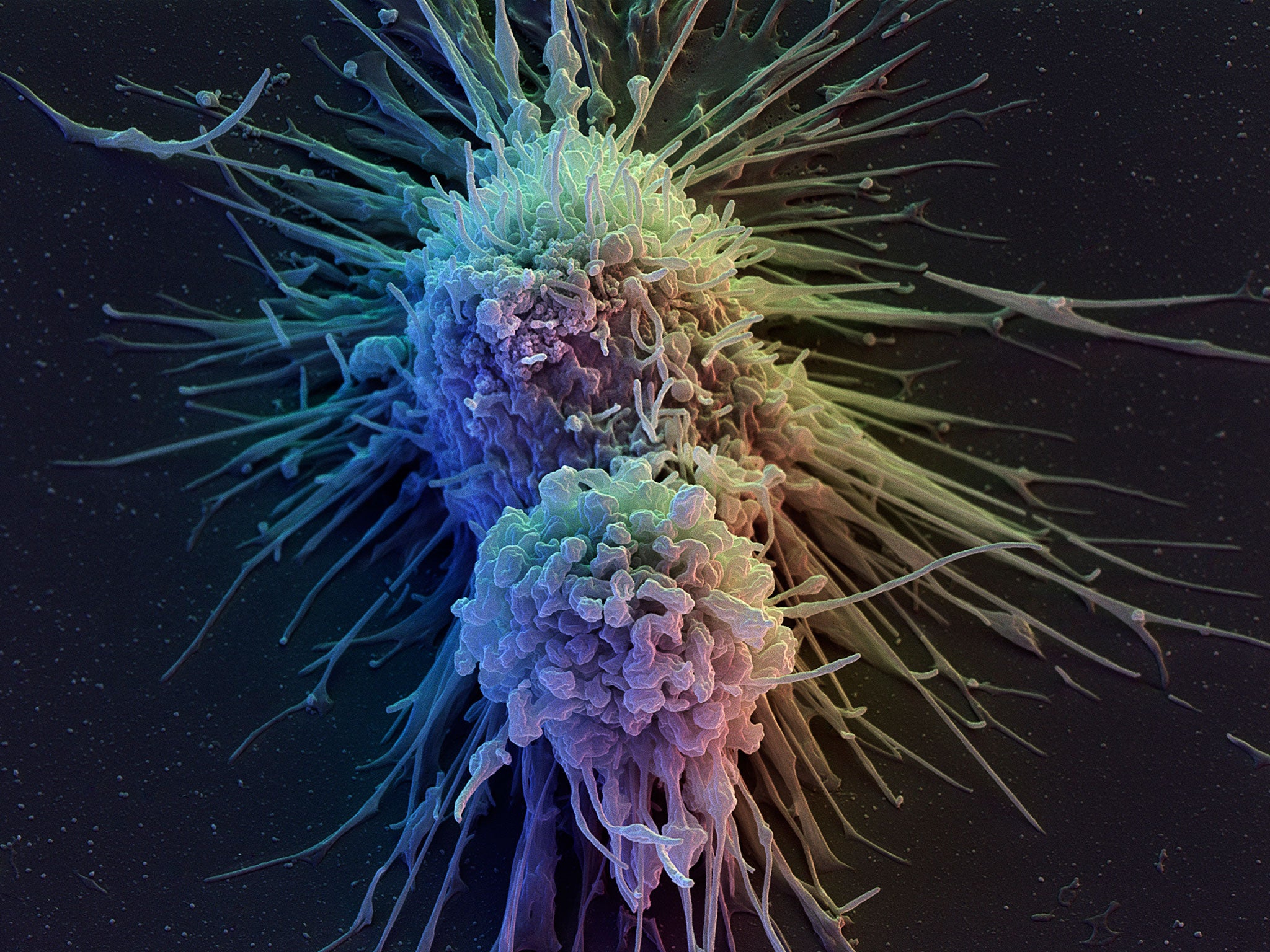T-cell therapy: Pioneering cancer treatment could protect the body for life
'Imagine translating this to cancer immunotherapy,' one of the researchers said, 'to have memory T-cells that remember the cancer and are ready for it when it comes back'

Your support helps us to tell the story
From reproductive rights to climate change to Big Tech, The Independent is on the ground when the story is developing. Whether it's investigating the financials of Elon Musk's pro-Trump PAC or producing our latest documentary, 'The A Word', which shines a light on the American women fighting for reproductive rights, we know how important it is to parse out the facts from the messaging.
At such a critical moment in US history, we need reporters on the ground. Your donation allows us to keep sending journalists to speak to both sides of the story.
The Independent is trusted by Americans across the entire political spectrum. And unlike many other quality news outlets, we choose not to lock Americans out of our reporting and analysis with paywalls. We believe quality journalism should be available to everyone, paid for by those who can afford it.
Your support makes all the difference.A new cancer treatment that could help kill off many kinds of cancer will also keep people safe through their whole lives.
Scientists have revealed that they are working on a treatment that could act like a vaccine for cancer, vastly improving the way the body can fight tumours.
The discovery is part of work on t-cells, which involves editing the genes of the protective parts of the body so that they can better spot and fight cancer.
And the researchers have also revealed that the treatment could last on in the body forever.
Lead researcher Professor Chiara Bonini, from the University of Milan in Italy, said: "T-cells are a living drug, and in particular they have the potential to persist in our body for our whole lives.
"Some of these memory T-cells will persist through the entire life of the organism ... Imagine translating this to cancer immunotherapy, to have memory T-cells that remember the cancer and are ready for it when it comes back."
For such an approach to work, the memory T-cells would have to be primed by genetic modification to attack the target cancer.
But the first step is to single out those cells with the ability to persist for a long time.
Prof Bonini's team studied 10 cancer patients who underwent bone marrow transplants and were infused with T-cells that were tagged so they could be tracked.
Small numbers of the cells were still found to be circulating in the patients' blood streams after 14 years.
The research was described at the annual meeting of the American Association for the Advancement of Science (AAAS) taking place in Washington DC.
Commenting on the study, British immunologist Professor Daniel Davis, from the University of Manchester, said: "These T-cells, the stem memory T-cells first identified in 2011, have stem cell-like properties and are thought to be important for long-lived immune responses.
"The implication is that infusing genetically modified versions of these particular T-cells ... could provide a long-lasting immune response against a person's cancer.
"Immunotherapy has great potential to revolutionise cancer treatment and this study shows which type of T-cells might be especially useful to manipulate for long-lasting protection."
Additional reporting by Press Association
Join our commenting forum
Join thought-provoking conversations, follow other Independent readers and see their replies
Comments